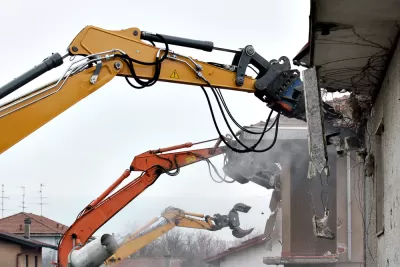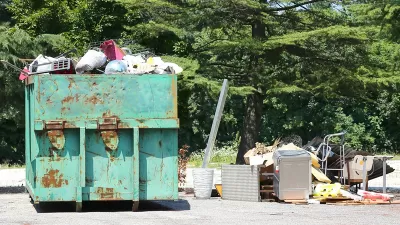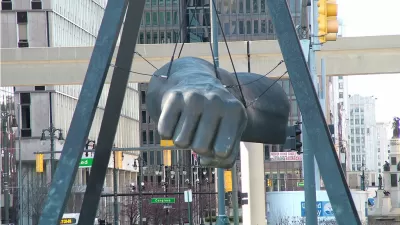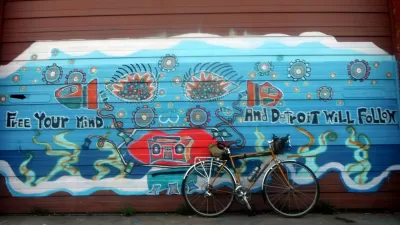Jason Hackworth argues that demolition has come to be seen as a good, in and of itself, in rust belt cities like Detroit; giving rise to policies that are wrong-headed and dangerous.

In recent years, the demolition of vacant homes and buildings has gone from being seen as a controversial act to being seen as inherently good. In a piece for American Politics and Policy Blog of the London School of Economics, Jason Hackworth argues that this is a dangerous assumption.
Hackworth opens his piece at a celebration of the demolishing of the 10,000th home in Detroit and uses this as a symbol of what he sees as exactly the wrong kind of thinking. Arguing that cities have become so enthusiastic about blight removal, that they've lost sight of the more important part of rebuilding cities and neighborhoods, the building itself.
"Detroit is not the only city to have embraced demolition-only urban policy. Cities across the region are using a variety of federal and state funds to demolish as much “blight” as they can," Hackworth claims. Through his research measuring the trajectory of neighborhoods with "extreme housing loss" Hackworth has found that, "The neighborhoods where demolitions have been most active are more economically and socially isolated than they were in 1970."
Hackworth condemns our celebration of demolition as "a collapse of policy imagination." Cautioning us against simplistic, quick fix thinking. Whether or not you find the research compelling, it's important to reexamine ideas billed as silver bullets for rebuilding communities and a reminder of the complexity inherent in rebuilding communities.
FULL STORY: Demolition-only urban policy leads to economic and social isolation.

Study: Maui’s Plan to Convert Vacation Rentals to Long-Term Housing Could Cause Nearly $1 Billion Economic Loss
The plan would reduce visitor accommodation by 25,% resulting in 1,900 jobs lost.

Alabama: Trump Terminates Settlements for Black Communities Harmed By Raw Sewage
Trump deemed the landmark civil rights agreement “illegal DEI and environmental justice policy.”

Why Should We Subsidize Public Transportation?
Many public transit agencies face financial stress due to rising costs, declining fare revenue, and declining subsidies. Transit advocates must provide a strong business case for increasing public transit funding.

Paris Bike Boom Leads to Steep Drop in Air Pollution
The French city’s air quality has improved dramatically in the past 20 years, coinciding with a growth in cycling.

Why Housing Costs More to Build in California Than in Texas
Hard costs like labor and materials combined with ‘soft’ costs such as permitting make building in the San Francisco Bay Area almost three times as costly as in Texas cities.

San Diego County Sees a Rise in Urban Coyotes
San Diego County experiences a rise in urban coyotes, as sightings become prevalent throughout its urban neighbourhoods and surrounding areas.
Urban Design for Planners 1: Software Tools
This six-course series explores essential urban design concepts using open source software and equips planners with the tools they need to participate fully in the urban design process.
Planning for Universal Design
Learn the tools for implementing Universal Design in planning regulations.
Smith Gee Studio
Alamo Area Metropolitan Planning Organization
City of Santa Clarita
Institute for Housing and Urban Development Studies (IHS)
City of Grandview
Harvard GSD Executive Education
Toledo-Lucas County Plan Commissions
Salt Lake City
NYU Wagner Graduate School of Public Service





























